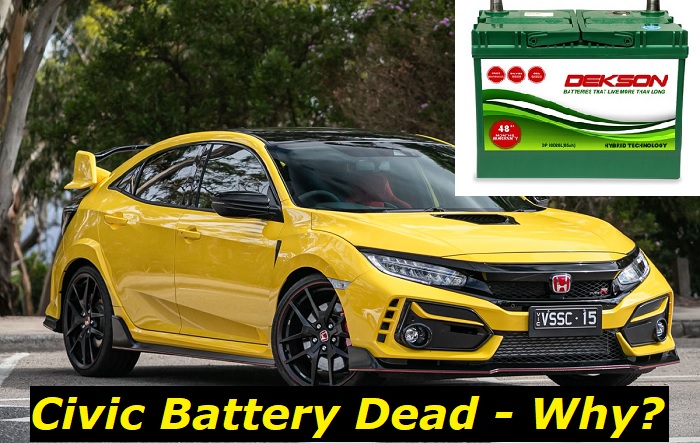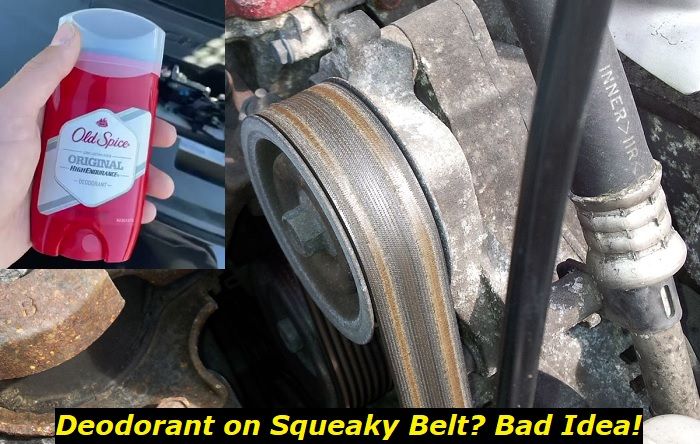Honda Civic is a very popular vehicle in the US and in many other countries. It's cheaper than the Accord, it's still very beautiful and stylish, it looks sporty and feels active. So, a lot of young people choose it and it also appeals to fans of an active lifestyle. The Civic is a decent car, but, like any other vehicle, it has its own common problems and disadvantages.
Common problems with 12V batteries highlights
- Possible reasons:battery age, driving conditions, drains, long sitting, electrical problems
- Types affected:all types
- Average age:4-5 years
- Most commonissues:low voltage, no crank, battery light, glitchy electronics
- Can you drive?only if it starts
- DIY fix:possible
- How much to fix?$150 - $250

How can you say that a battery in your Civic is dying?
It's not hard to see that something is going to happen with the battery if you just keep an eye on how the car acts in different situations. You may know that a battery in your vehicle is needed when the engine is off. Once the gasoline engine is on, the alternator gets into action and starts producing electricity for the whole network and also for charging the 12V battery.
So, the main action that relies fully on the battery is engine cranking. The starter motor relies on the battery only and it can't work properly if the battery is not in a good condition and discharged. But also, all systems of your Civic that stay active when the engine is off also rely on the battery.
Here are some of the most common symptoms saying that the Civic battery is dying:
- Dim headlights when the engine is off. If you turn on headlights and see they are very dim and then you start the engine and the lights are OK, you should look at the battery - it may be dying.
- The multimedia system not working or glitching. Again, it will work properly after you start the engine but it may glitch when the engine is off. This means that the system doesn't get enough voltage from the battery.
- Poor cranking with pauses. If you try to start the engine in the Civic but it cranks heavily or shows some pauses between cranks, it means the battery is too weak to provide an optimal start.
- The engine doesn't crank when you try to start it. The starter motor just clicks or maybe doesn't show any signs of motion. This means the battery is dead. When you try to start the engine in this situation, the light on your dash will get dimmer.
- The fault codes come up. Sometimes you may see unexpected fault codes when you try to start the engine with a dead battery. These codes may even come up when you drive your car and still don't know about the problems with the battery.
The dead battery may lead to problems. One of the worst things is that it supplies your Civic with low-voltage electricity. It means that the electronic blocks and units don't work properly. You may start getting fault codes connected with airbags, ECU issues, engine sensors, fuel pump, etc.
If you know that your Honda Civic has a problematic battery, you shouldn't wait until it starts getting on your nerves with its repeated problems. Once you may just end up getting stuck somewhere in the middle of nowhere. Please remember that there is no way to start a car with an automatic transmission but to crank the engine with a starter motor.
Why can a battery die in your Civic?
- Electricity drains. Unfortunately, it's not uncommon for a Civic to have battery drains. It's just as common as in many other cars, but some Civics are especially willing to let their owners down by draining all the batteries.
- Old battery. A standard car battery will live about 5 years. If you only drive in the city and don't maintain the battery by charging it sometimes, it will even live no longer than 3 years.
- Bad alternator. The alternator produces electricity for your vehicle when the engine runs. If it works poorly or doesn't work at all, you can get ready to replace batteries every month because they will be drained out.
- Wiring problems. Sometimes, the problem is in wiring. For example, the wire that sends electricity from the alternator to the battery may get loose or broken and this will lead to bad charging or no charging at all.
- Car alarm failures. The civic alarm will work even if you don't use your vehicle and just keep it in your garage. It will drain your battery step by step. But if it's not working properly, it can kill the battery pretty fast.
- Cold temperatures. In a cold climate, the 12V car batteries don't live long. They get discharged very fast and they really need servicing every month. Otherwise, they will just die.
- Bad battery. Maybe, you decided to save up some money and buy a very cheap battery from an unknown brand. You should know then that such batteries will probably work for one year and then they will just let you down.
How much is it to replace a battery in your Civic?
A replacement battery for a Honda Civic will cost from $100 to $250 and even more if you choose some exotic elite option. But most people will buy something from a mid-price range. It doesn't matter much which brand you choose, but the most important thing is to buy a battery that corresponds to all Honda requirements for your Civic.
Be careful and look at such features:
- the voltage - it should always be a 12V battery;
- the starting current - it's a very important parameter;
- battery capacity - not too high and not very low;
- size - the bigger battery will not fit in the needed place;
- terminals - it's important to buy a battery that suits the Civic;
- terminal side - pay attention to the side of negative and positive terminals.
It's not important whether you buy an OEM battery from a dealer that would probably cost you $400 or just a good battery in a car part shop that would cost about $200. Also, you can replace the Civic battery by yourself - just have a look at those video instructions you can find online. It's not hard to get your Civic back to life and you won't necessarily need to go to the repair shop for this.
How can you avoid problems with the Civic battery?
One day, the battery will still die. And it would be cool if you know about that before the day X comes. Then, you will have the opportunity to replace or at least recharge the battery and avoid problems with low charge and bad cranking.
But you may even avoid soon death of the Civic battery if you follow some tips. Here are some of the most important ones:
- always pay attention to how the engine cranks when you start the vehicle;
- don't forget to check the fault codes if you get some on the dash;
- check and recharge the battery sometimes if you only drive in the city;
- don't use the multimedia system when the engine is off;
- don't forget to turn off all the lights when you are out of the vehicle;
- replace the battery once the old one starts showing signs of its soon death;
- only buy high-quality batteries that can live long;
- check the vehicle for any possible drains if you see there are problems.
Your Honda Civic will need a professional service if you notice battery drains. Just living it until the next regular service is not a wise idea because once you may just not start your car. And then you will need to pay for towing, quick repair, etc. Just keep the eye on the battery and never let it just die.
Final words
A Honda Civic can be a very reliable and fun car to drive. But of course, it has some drawbacks and common problems. The electricity supply system in this car is not the most reliable and problem-free. We know a lot of cases of critical battery drains and unexpected problems with wiring. But all of those problems are relatively easy to deal with. So just be careful with the vehicle and pay attention to how it works to prevent and avoid problems.
About the authors
The CarAraC research team is composed of seasoned auto mechanics and automotive industry professionals, including individuals with advanced degrees and certifications in their field. Our team members boast prestigious credentials, reflecting their extensive knowledge and skills. These qualifications include: IMI: Institute of the Motor Industry, ASE-Certified Master Automobile Technicians; Coventry University, Graduate of MA in Automotive Journalism; Politecnico di Torino, Italy, MS Automotive Engineering; Ss. Cyril and Methodius University in Skopje, Mechanical University in Skopje; TOC Automotive College; DHA Suffa University, Department of Mechanical Engineering






Add comment